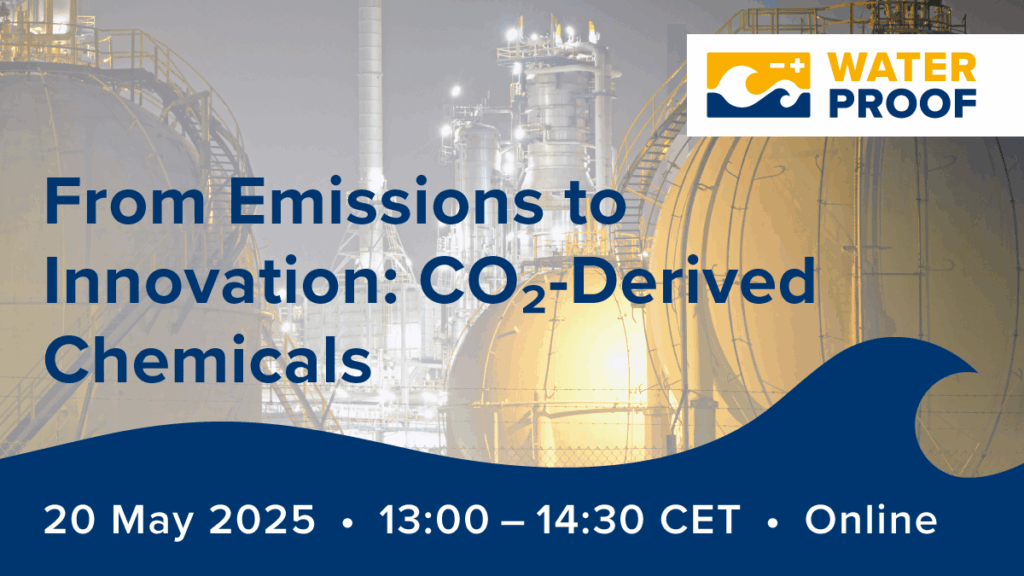
20 May 2025, 13:00-14:30 CET, online and free
Carbon dioxide (CO₂) is known as the main driver of climate change. Yet, CO₂ is increasingly recognised as a promising renewable feedstock for the production of valuable chemicals and fuels. By capturing CO₂ emissions from industrial point sources or directly from the air (direct air capture, DAC) and converting them into essential building blocks, it is possible to reduce reliance on fossil resources from below ground, lower greenhouse gas emissions, and help drive the transition to a circular, climate-neutral economy.
Recent advances and innovations in Carbon Capture and Utilisation (CCU) technologies are making it feasible to transform CO₂ into a wide range of products, ranging from base chemicals to advanced fuels. These innovations are not only closing the carbon loop of the chemical industry (defossilisation) but also enabling the integration of renewable energy and transport fuels (decarbonisation) into chemical processes, further reducing the environmental footprint of these vital industries.
The spectrum of CO₂-derived chemicals and fuels is rapidly expanding thanks to breakthroughs in electrochemical, catalytic, and biotechnological processes. Some of the most promising examples include:
Chemicals such as Methanol, Formic acid, Ethanol, Acetic acid, Urea, Polycarbonates and cyclic carbonates, Organic acids (e.g., carboxylic acids, salicylic acid, malonic acid), Esters and lactones, Aromatics and olefins, Glycerol carbonate.
Fuels such as Synthetic gasoline, diesel, and kerosene, Methane, and E-fuels.
These examples illustrate the broad potential of CO₂ as a renewable carbon source for the chemical and materials industry and the energy sector, supporting the shift towards sustainability and circularity.
To explore these exciting developments, the EU-funded research project WaterProof is hosting a webinar titled “From Emissions to Innovation: CO₂-Derived Chemicals” on May 20th, 2025, from 13:00 to 14:30 CET.
The event will bring together leading experts including
- Pia Skoczinski (nova-Institute) – Renewable Chemicals from CO₂ – An Overview
- Francesca di Bartolomeo (SINTEF, coordinator PyroCO2 Project) – Pioneering Sustainable CO₂ Conversion to C3 Chemicals and High-Value Lipids for Feed and Food Applications
- Albert Guisasola (Autonomous University of Barcelona (UAB), Vivaldi Project) – Innovative bio-based chains for CO₂ valorisation as added-value organic acids
- Eric Schuler (Avantium, WaterProof Project) – Innovative Chemicals and Sustainable Polymer Solutions from CO₂ and renewable electricity
Attendees will gain insights into the latest CCU technologies, market trends, and applications that are driving the shift towards a circular carbon economy.
Discover how CO₂ is being utilised as a valuable resource and learn about the innovations shaping the future of sustainable chemicals. Register now to be part of this dynamic conversation and help unlock the full potential of CO₂-derived chemicals.
